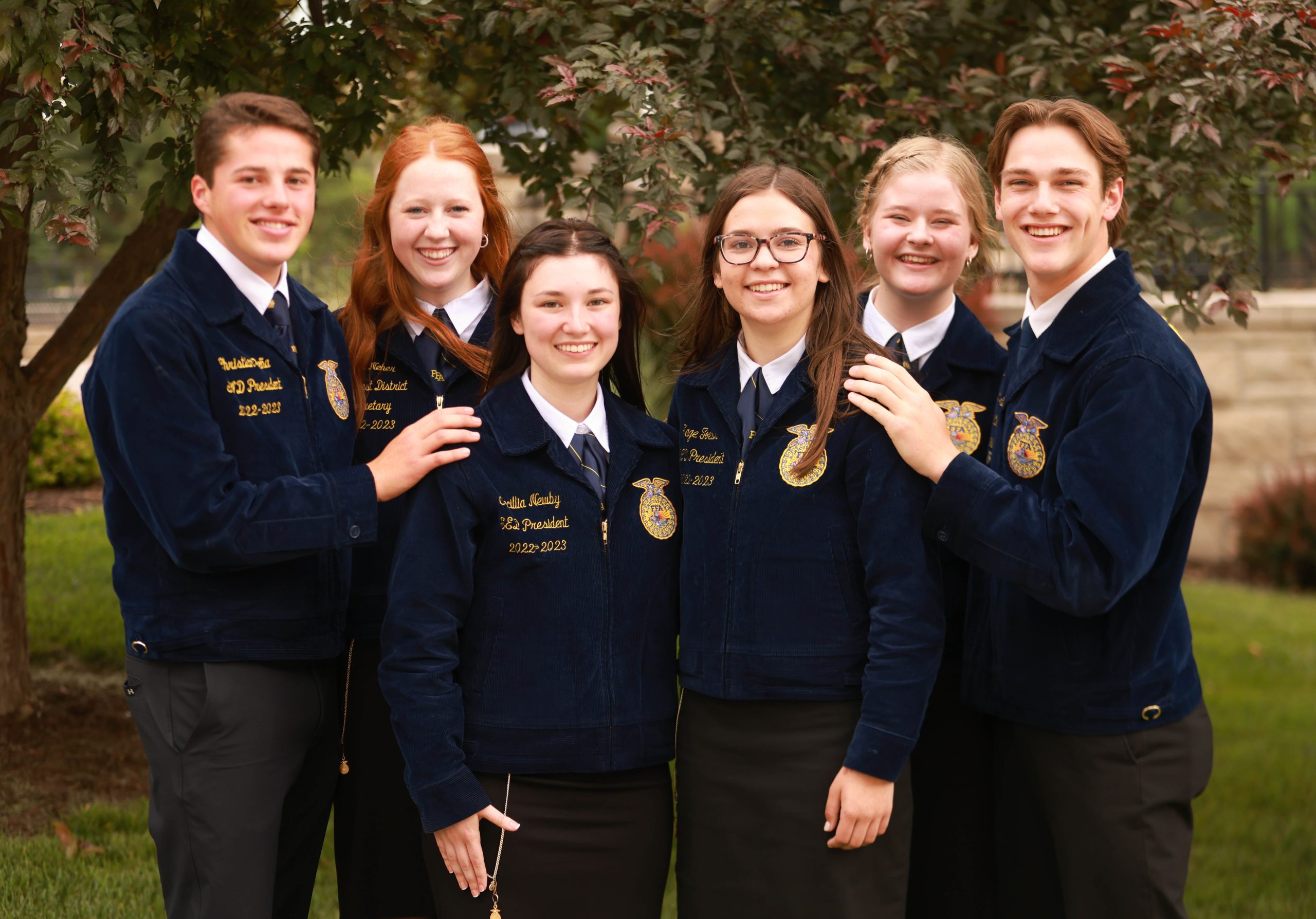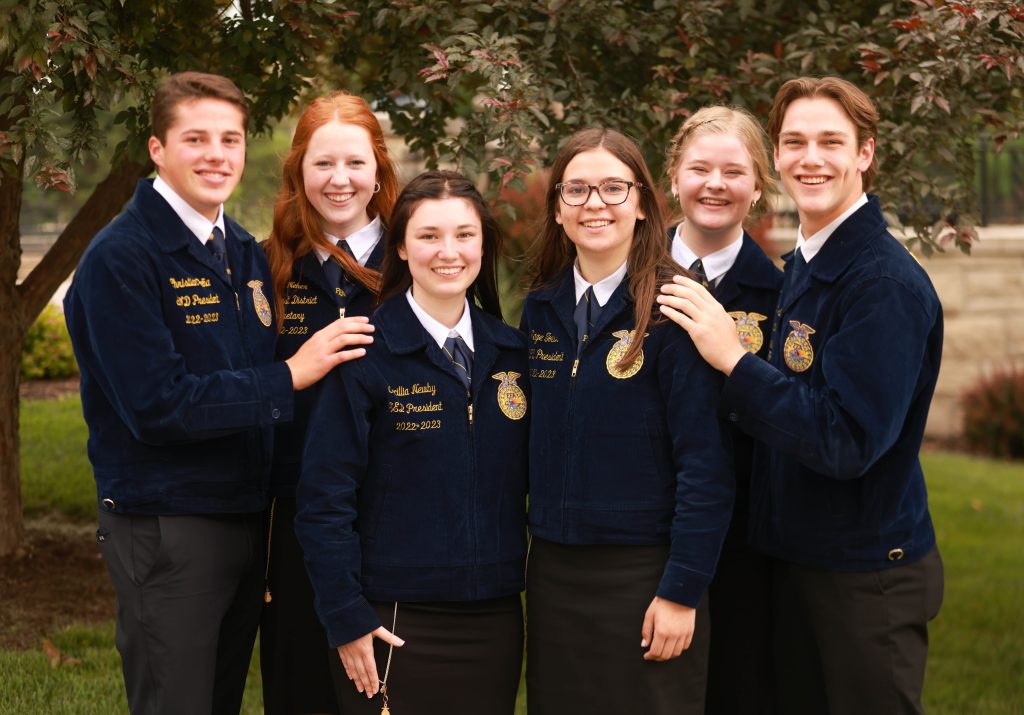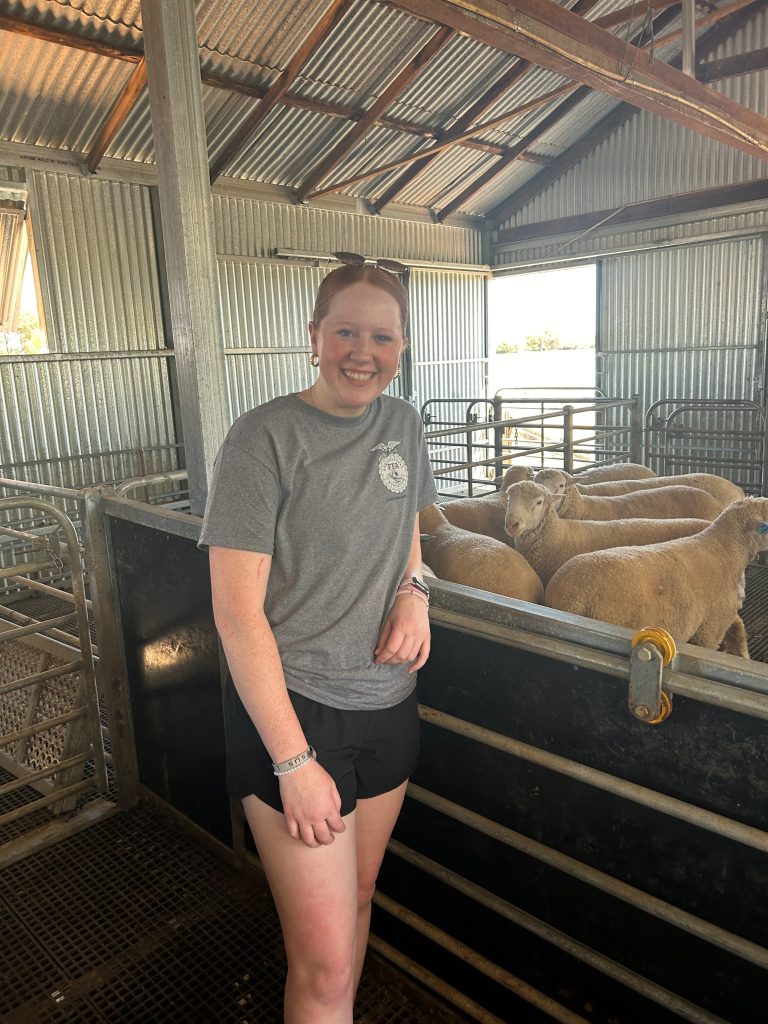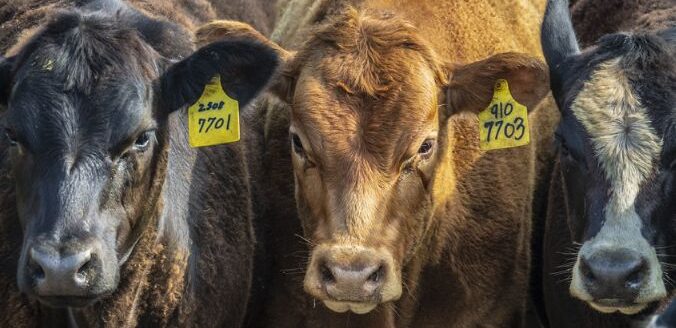FFA continues to open doors for one state officer

A state FFA convention can evoke a gamut of feelings for a participant. Even more so for those vying for a state officer position.
When Karli Neher was sitting backstage to learn her fate at the 2023 Kansas FFA convention, she knew in the back of her mind, that life was about to look very different. It could have gone one of two ways for the former Hays, Kansas FFA member. She could hear her name called or this would likely be her last time donning the blue and gold.
“You’re sitting backstage right before you’re about to run out and think about how that could be the last time that you’re maybe wearing your FFA jacket if your name isn’t announced,” she said. “Then when you go home that night, you’re taking it off and maybe you’ll put it on again to receive an award or to receive your American degree but you’re never going to put it on in the position that you are right then.”
Hearing your name called is life changing, and for Neher, she’s had the opportunity to wear it for another year as treasurer for Kansas FFA. Those elected to serve as state officers for Kansas FFA in 2023-24 are President Christian Peña, from the Sublette FFA Chapter; vice president Payton Ryba, from the Cheney FFA Chapter; secretary Cecillia Newby, from the Labette County FFA Chapter; treasurer Karli Neher, from the Hays FFA Chapter; reporter Sage Toews, from the Canton-Galva FFA Chapter; and sentinel Kai Cox, from the Northern Valley FFA Chapter.

After elections the officer team was tasked by the state executive secretary Mary Kane to journal their emotions, and for Neher, it was joy.
“It was such a rewarding experience, but also because of the efforts that I’ve put in and all the candidates are obviously putting in lots of effort, but of the ones chosen to represent the state at such a high level was really rewarding and really a joyful experience,” she said.
Right after the election, family came to mind as well. The six-member team has gotten close and Neher calls them all her very best friends.
“(It) was also a really unique experience for us right off the bat,” Neher said.
Roots
Being homeschooled, Neher didn’t have a traditional academic career as many of her peers. She looked up to her older brother Kaleb, who decided to go to Hays High School and take some agriculture classes in addition to his homeschool class load.
“I wanted to do the very same thing like he had done in his life in terms of the leadership skills that he created, and the opportunities in agriculture that he was getting,” she said. “And so then my freshman year of high school, I was enrolled in agriculture education classes, and then I did the rest of my schooling at home online.”
During her freshman year, she competed in various events, with her classes mostly corresponding to the contests that semester.
“I was doing things like dairy judging, poultry judging and parliamentary procedure,” she said. “And that really gives you a breadth of experience into the contests that you can compete in.”
Throughout her years in high school she found what contests she enjoyed and excelled in were public speaking, parliamentary procedure, poultry judging, and ag sales.
After that first year, her chapter adviser encouraged all his students to become involved in the officer elections, regardless if they’d had leadership experience or not.
“He really encouraged us to submit the applications and to do it and although he was leaving the year after a lot of members of my class decided that we wanted to run,” Neher said. “I also knew that my brother who had proudly served as a chapter officer was probably going to be on the team again, and I thought that would be a really cool opportunity (to serve with him.)”
Following her freshman year she submitted her application for chapter office and because of COVID, the interview/election process looked different, but Neher was elected chapter secretary her sophomore year. She was later elected chapter president her junior and senior years.
And now that both Nehers have since graduated, their younger sister, Ella, is following in her sibling’s footsteps by taking agriculture classes and being in FFA.
“The experience is really like no other. I looked up to my older brother a lot and coming from the homeschool background I didn’t initially go into high school with a ton of friends or a solid friend group like a lot of students do,” Karli said. “I looked to his friends for some guidance within the organization and they became really good mentors.”
Now being able to do the same for Ella makes the situation that much more special.
“I would say Ella and I will have a more similar FFA experience than Kaleb and I did just because of the things that we’re interested in and kind of leaning more toward the leadership development side versus the career development side,” Neher said. “So it’s been really unique to get to watch her follow in my footsteps, but also create her own path.”
Kansas FFA Foundation Executive Director Beth Gaines said there are unique situations in which families, like the Nehers, have worked closely with the local school district, which has allowed homeschooled students to attend the public school for agriculture education classes so that they may become members of the FFA.
“Because FFA is an intra-curricular program, agriculture education class attendance is mandatory,” Gaines said. “We get many inquiries about home-school options, but because of federal regulations, we cannot allow participation in FFA activities without this class component. I encourage families who do utilize homeschool curriculums to visit with the local school district about attendance options.
Nonetheless, agriculture education and the FFA are a growing and vibrant part of 226 school districts in the state.
“We have experienced phenomenal growth in agricultural education programs in the past decade, with the addition of more than 70 new programs and the accompanying FFA chapters across Kansas,” she said. “We even have an agriculture education program and FFA chapter in a private school at TMP-Marian.”
Duties
During Neher’s freshman year, the state officers visited her school during National FFA Week, and made quite the impression.
“Those are still state officers that I’m connected with to this day,” she said. “And right then and there, I knew that I wanted to run for a state officer position like they held.”
Admittedly she psyched herself out a little bit and was unsure how it would work out, but the summer before her senior year of high school she made a decision to be all in for state office.
“You have to be very vulnerable with yourself and those around you to do that because the growth that you have to experience in order to run is pretty incredible,” Neher said. “And so it was a decision that—it came easy to me, I should say, but it wasn’t a light decision that I made.”
Despite all the travel, meetings, trainings and events, Neher has been able to experience as a state FFA officer, she’s found a way to be involved and learn every step of the way.
Gaines said one outcome of participating in FFA activities at every level is the opportunity to travel and learn.
“Whether traveling across the FFA district to take part in tours or contests, traveling across the country to attend the Washington Leadership Conference or National Convention, or putting the first stamp in a passport to participate in an agricultural experience abroad, FFA provides memorable experiences for members,” she said. “I’m always excited to hear about the state officers’ perceptions of agriculture in another country when they return.”

Neher recently returned from Australia and the International Leadership Seminar for State Officers hosted by the National FFA. Seventy-five state officers from across the country go overseas to learn about global agriculture. Neher and three of her Kansas teammates were among the 75.
“We looked at rice, wheat, corn, sheep, beef, dairy, along with a few other industries and then just we were able to talk to the Australian version of FFA, which would be their Future Farmers Network,” she said. “We got to interact with leaders from that organization and talk about what they’re doing to promote agriculture among the young people over there.”
For Neher, who shows sheep and goats competitively and her family has a “very, very small sheep operation,” her favorite experience in Australia was several stops at various sheep operations.
“To see the sheep industry thriving in Australia, whether that is meat or wool was so interesting,” she said. “My favorite part was just getting to pick the brain of the producers over there and see what methods they’re using and how efficient they are and raising sheep.
Something that surprised her was the pride Australians took in agriculture.
“We were able to visit parliament while we were there. Everywhere around parliament and everyone that we talked to was so proud of their agriculture, and they’re proud of what they’re doing over there,” she said.
Future
As for what’s ahead for Neher and FFA, she’s leaving doors open.
“That’s what I’ve been telling everyone in terms of the national office question—I’m getting that a lot,” she said. “But I will be in the near future headed to K-State to study agriculture education, and then hopefully teach at a high school level in western Kansas and be an FFA advisor.”
Kylene Scott can be reached at 620-227-1804 or [email protected].



